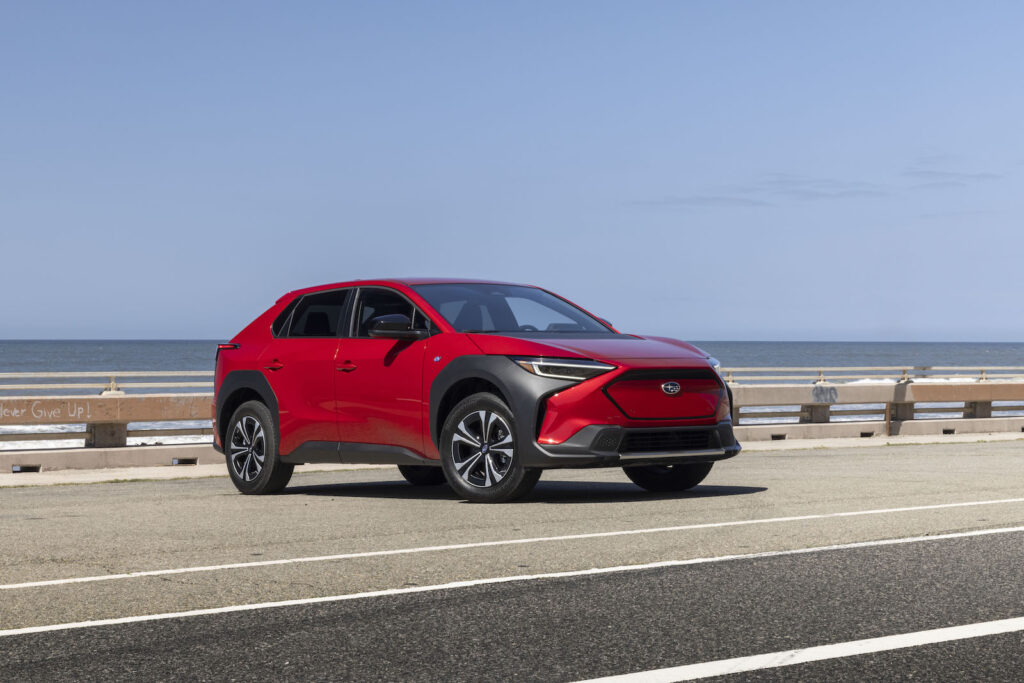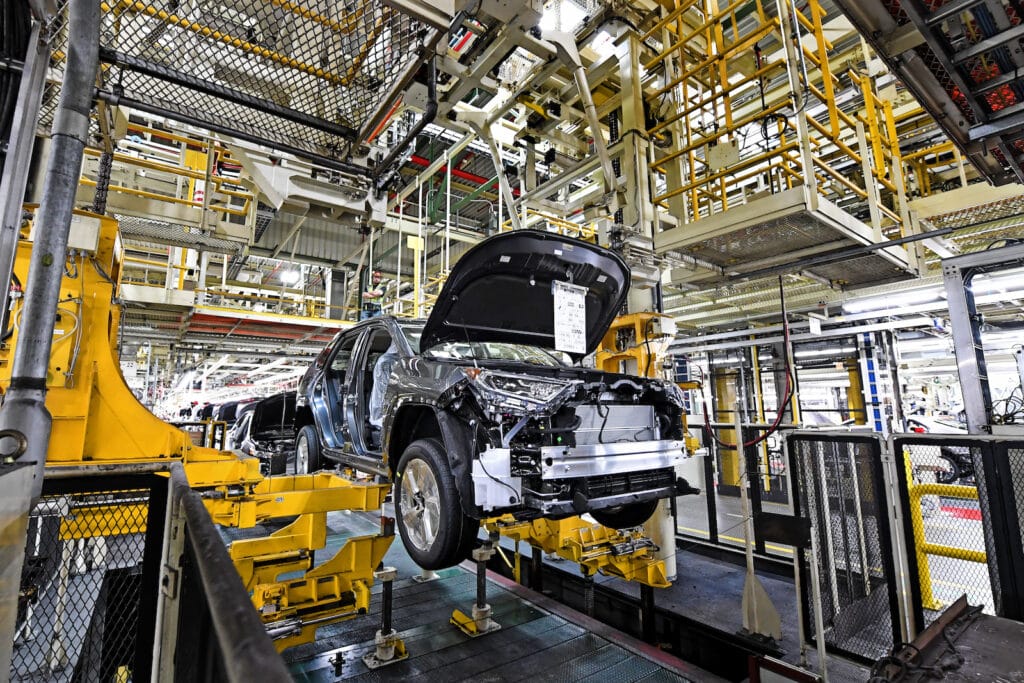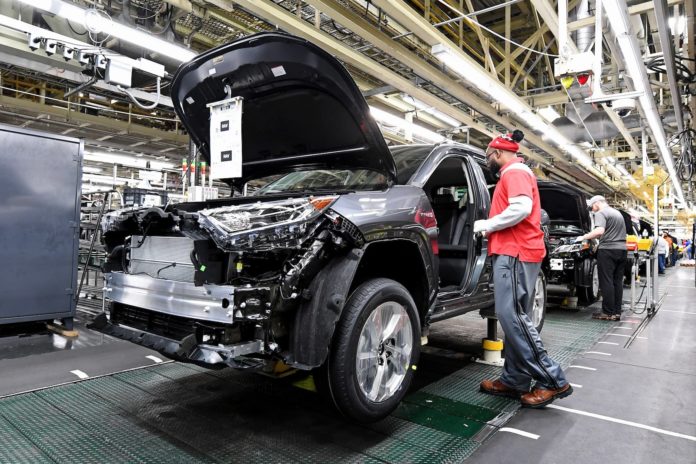Already partnered on two compact battery-electric vehicles, Toyota and Subaru will team up again on a pair of three-row, all-electric crossovers set to be assembled in the U.S.
The two new models will go into production in 2025, according to Automotive News, which quoted “people with knowledge of the plan.”
Both manufacturers are playing catch-up in the EV market and see such collaborative efforts as a way to both speed up time to market while also sharing development costs, officials with both Toyota and Subaru previously told TheDetroitBureau.com.
An expanding alliance
The two manufacturers first collaborated on a pair of conventional, gas-powered sports cars, the Subaru BRZ and Toyota 86, which came to market in 2013 — and which were completely redesigned two years ago.
They subsequently partnered on the development of their first long-range battery-electric vehicles, the two-row Toyota bZ4X and Subaru Solterra crossovers, both launching in the U.S. for the 2023 model year.
Toyota now holds a 20% stake in Subaru, the smaller maker having a 0.3% in the larger manufacturer.
Their latest project will bring to market the second of four all-electric crossovers that Toyota previously said it plans to offer in the U.S. by 2026. It will be Subaru’s second EV, as well.

Sharing the costs
“Subaru’s pocketbook isn’t as deep as Toyotas. For it to develop a new three-row crossover it helps to have a deep-pocket partner like Toyota,” said Stephanie Brinley, associate director of AutoIntelligence for S&P Mobility. “For Toyota, it helps to have more scale” which can reduce per-unit production costs.
While Toyota insiders signaled that their version of the crossover will be named the bZ5X — the bZ short for the automaker’s “Beyond Zero” program — it is unclear what the Subaru model will be named.
Neither Subaru nor Toyota have responded to a request for comment yet. This story will be updated, if and when they do.
Details TBA
Beyond the fact the two new EVs will feature three-row seating, no other details have been confirmed about the products themselves.
With the two smaller crossovers, Subaru played a lead role in developing their drivetrain, coming up with an electric version of its familiar all-wheel-drive technology. Toyota, in turn, was in charge of manufacturing. Both models are imported from Japan.
Production shifting to the U.S.

Toyota earlier signaled plans to assemble EVs in the U.S. and it reportedly will retool its 9-million-square-foot plant in Georgetown, Kentucky at a cost of $461 million to handle the new joint venture. The Georgetown plant will continue to produce a variety of gas-powered models for the Toyota and Lexus brands and it will assemble hydrogen fuel-cell technology for use in heavy-duty trucks starting in December.
Batteries, meanwhile, will be supplied from a new facility Toyota is setting up in Liberty, North Carolina.
By shifting production of both the vehicles and their batteries to the States, Toyota could qualify for up to $7,500 in federal tax credits under the Inflation Reduction Act. But it is not yet clear whether key raw materials, including lithium, nickel, cobalt and manganese, will also be locally sourced, as also required under the IRA.
More three-row EVs are coming
Toyota and Subaru are just the latest manufacturers looking to get into the three-row EV crossover niche. Kia will launch its own EV9 later this year, with its South Korean sibling Hyundai to follow with one of its own. Ford and General Motors have confirmed similar plans. Mercedes-Benz already offers the three-row EQS SUV.
“Eventually, automakers who are in the three-row space with internal combustion engines will get there with three-row EVs,” said Brinley.
Along with the bZ4X and the Subaru Solterra, Toyota also produces a version of its two-row EV sold through its luxury brand as the Lexus RZ. It is not yet known if Lexus will get an upscale version of the bZ5X, as well. But officials with the brand have indicated they will expand their EV line-up, as well, in the next few years.

